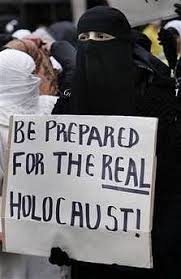 I'm in that 'when I pull a face' place again, this time because of the escalating use of violence and terror being used against many Iranians' by their so-called religious Supreme Leader and his hard-line clerics; in fact, when I see or hear the words 'ayatollah', 'cleric' or 'mullah' these days, my flesh creeps. In my view, these people, by their words and by their actions, occupy the lowest order of humanity and their extremist violence clearly demonstrates why secular governments are the preferred option to those organised on religious grounds. Our own history is full of examples of the brutality that is the dark-side companion of theocracy; to quote from GlobeNewswire's report on Frazier Park's new book, Theocracy Throughout The Ages: Victory or Catastrophe?, 'This book clearly enumerates Christianity's long history of crimes against humanity, extending back nearly two thousand years. As observed, religious interference in secular matters resulted in a cruel, authoritative control over population with little regard for rights of the individual; testifying to the evils of theocracy. Publication of the "torture memos" documents what can happen when religious radicals gain control of government'. What we are witnessing today then, is the continuing evils of theocracy as demonstrated through a man, merely a man, who claims devine power over all the millions of people that make up Iran.
I'm in that 'when I pull a face' place again, this time because of the escalating use of violence and terror being used against many Iranians' by their so-called religious Supreme Leader and his hard-line clerics; in fact, when I see or hear the words 'ayatollah', 'cleric' or 'mullah' these days, my flesh creeps. In my view, these people, by their words and by their actions, occupy the lowest order of humanity and their extremist violence clearly demonstrates why secular governments are the preferred option to those organised on religious grounds. Our own history is full of examples of the brutality that is the dark-side companion of theocracy; to quote from GlobeNewswire's report on Frazier Park's new book, Theocracy Throughout The Ages: Victory or Catastrophe?, 'This book clearly enumerates Christianity's long history of crimes against humanity, extending back nearly two thousand years. As observed, religious interference in secular matters resulted in a cruel, authoritative control over population with little regard for rights of the individual; testifying to the evils of theocracy. Publication of the "torture memos" documents what can happen when religious radicals gain control of government'. What we are witnessing today then, is the continuing evils of theocracy as demonstrated through a man, merely a man, who claims devine power over all the millions of people that make up Iran. I'm also pulling a face over the burqa issue. In my daily interactions with other people, the visual clues and signals I receive and send out play an important role in the communication process between myself and the other person(s). If the other person is obscured from me, then I am at a loss as to what their intentions maybe; just seeing their eyes is not enough to determine what is going on. I also happen to believe that the burqa is a weak man's tool for oppression and that it has nothing to do with religious belief. The Muslim Council of Britain believes otherwise and as stated in the comments section of the The Sunday Times it says that, 'It is patronising and offensive to suggest that those Muslim women who wear the burqa do so because of pressure or oppression by their male partners or guardians'. The opposite view is given in the same article by Taj Hargey, chairman of the Muslim Educational Centre of Oxford who says, 'that in his opinion the mullahs fail to tell their flocks that nowhere in Islam's transcendent text is there any mention of the word burqa or niqab'. Usma Hasan, a reformist iman in London points out that the Koran advocates that 'Muslims should respect local customs'. So, a local custom here then, is that a burqa or niqab is not worn and that is how it should be.

No comments:
Post a Comment